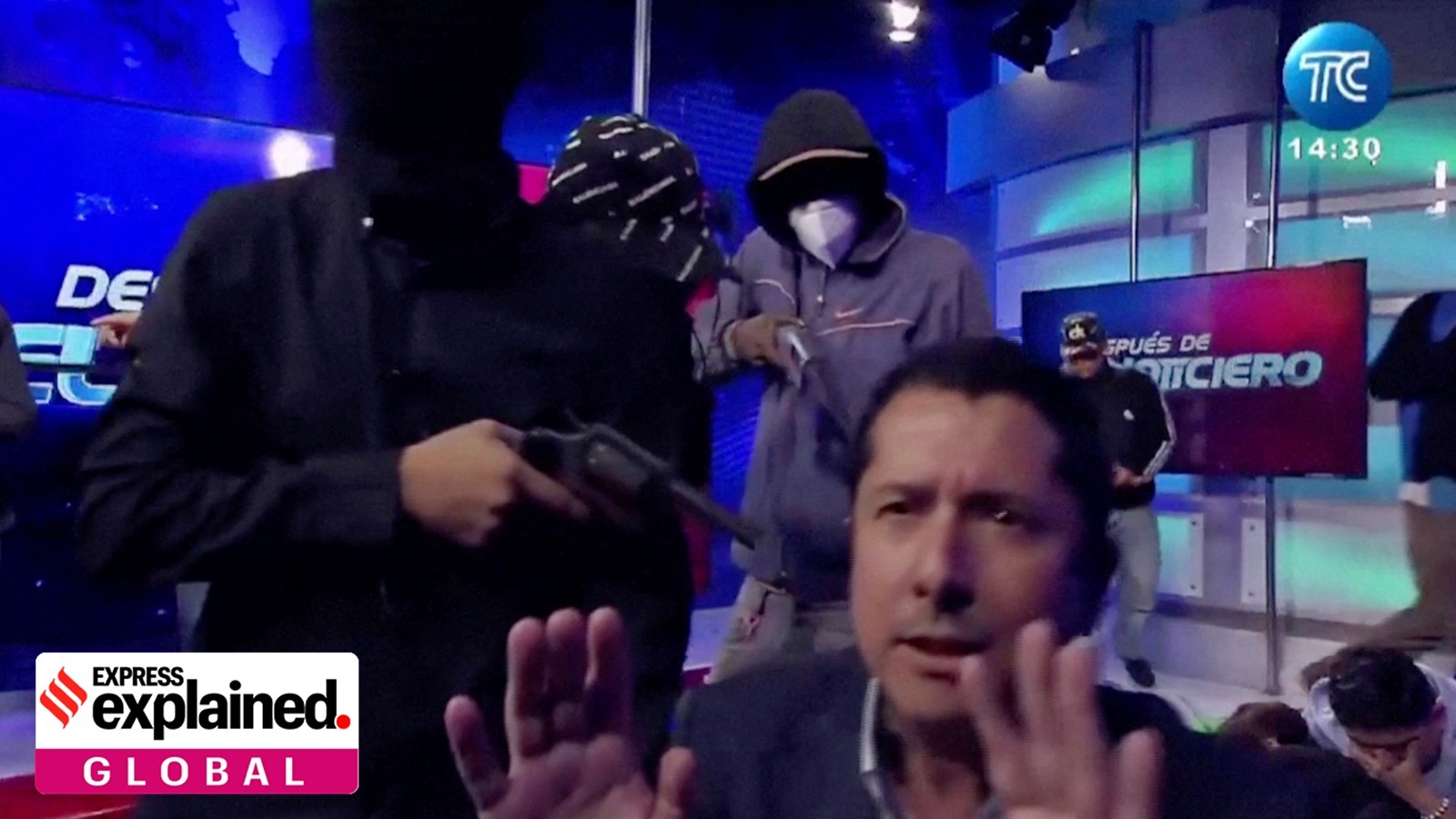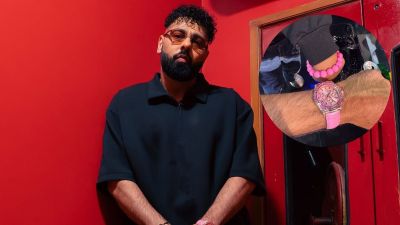Gunmen hold journalists hostage during TV programme: What is happening in Ecuador?
From being one of Latin America’s least violent countries, Ecuador has seen an exponential rise in crime. Here are the factors that led to this, and what the govt is doing to tackle the situation.
 A hooded man points a gun at Ecuadorian TV presenter Jose Luis Calderon while on air inside Ecuador's TC television station, in Guayaquil, Ecuador, January 9, 2024, in this screen grab from video. (Courtesy TC/Handout via REUTERS)
A hooded man points a gun at Ecuadorian TV presenter Jose Luis Calderon while on air inside Ecuador's TC television station, in Guayaquil, Ecuador, January 9, 2024, in this screen grab from video. (Courtesy TC/Handout via REUTERS) Masked gunmen momentarily seized control of a public TV news station in Ecuador on Tuesday (January 9), on a day when multiple instances of violence were reported across the country.
A day before, the South American nation saw the declaration of a 60-day emergency after the boss of a criminal gang, Adolfo Macías Villamar, escaped from prison. What is happening in Ecuador and what led up to it? We explain.
Ecuador and its drug war
A host of interrelated problems have been plaguing Ecuador for some years now. As the think tank Council on Foreign Relations noted, “For decades, Ecuador was one of Latin America’s least violent countries. Now it has the region’s fourth-highest homicide rate — higher even than Mexico.”
In 2020, after neighbouring Colombia signed a peace accord with the Revolutionary Armed Forces of Colombia, or FARC, the group’s control on cocaine trafficking ended. With the resulting power vacuum, the networks began moving to Ecuador. Two neighbouring cocaine producers – Colombia and Peru – have contributed to the country becoming a major shipment point for the drug.
The Covid-19 pandemic then added to economic woes, making the situation ripe for young and unemployed people to become involved in the drug war. Ecuador’s government believes this is due to the growing reach of cocaine trafficking gangs. The scale of rising law and order problems can be gauged from the fact that the number of violent deaths rose to 8,008 in 2023, nearly double the 2022 figure.
Despite attempts at a crackdown, gang wars-fuelled violence inside prisons has become a cause of concern, even leading to fatalities. Many Ecuadorians are also immigrating to the US in search of a better life.
What happened in Ecuador this week?
Reuters reported the police as saying on Sunday that Adolfo Macías Villamar, the leader of the Los Choneros criminal gang, had disappeared from the prison where he was serving a 34-year sentence. “The unrest appears to be in response to President Daniel Noboa’s efforts to tackle cocaine trafficking, in particular by putting gang leaders in new high-security prisons,” it added.
Further, seven police officers were also kidnapped around the country, though three have been freed. In the TV station capture attempt, more than a dozen people in the group were arrested. Several blasts were also reported.
What is the government doing?
Ecuador’s President Daniel Noboa, 36, was elected to office in November 2023. Under his “Phoenix Plan” for security, he aims to establish a new intelligence unit, tactical weapons for security forces, new high-security prisons and reinforced security at ports and airports.
It will cost some $800 million, he said, though $200 million in new weapons for Ecuador’s army will be provided by the United States.
Noboa declared a 60-day state of emergency – enabling military patrols, including in prisons, and setting a national nighttime curfew. His coalition, a broad alliance of center-left, center-right and centrist groups, has a majority in the National Assembly, unlike his predecessor.
According to The Guardian, “The president also plans to hold a referendum proposing strengthened crime-fighting measures such as seizing assets from suspected criminals and lengthening prison sentences.”
(With Reuters inputs)
- 01
- 02
- 03
- 04
- 05






































